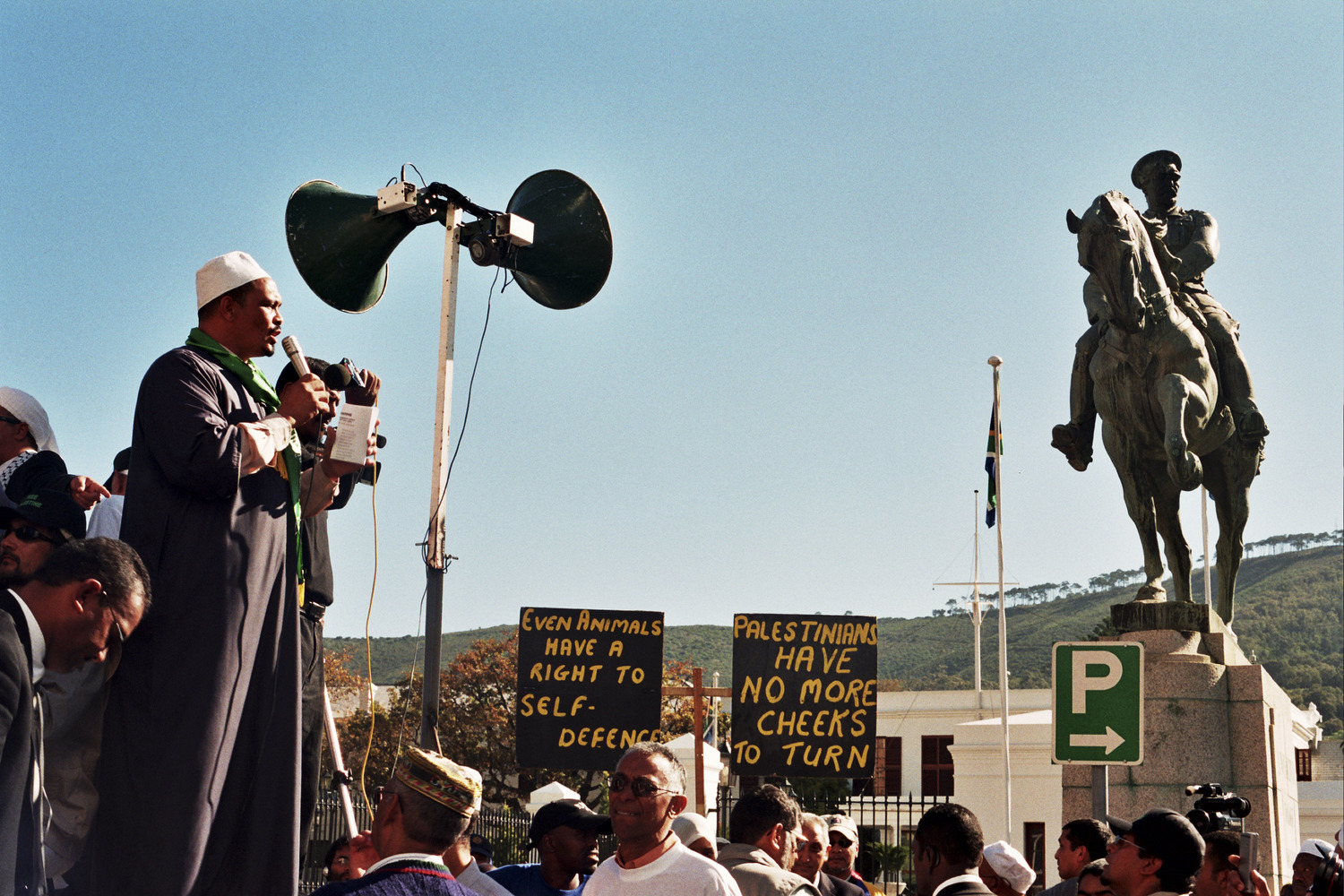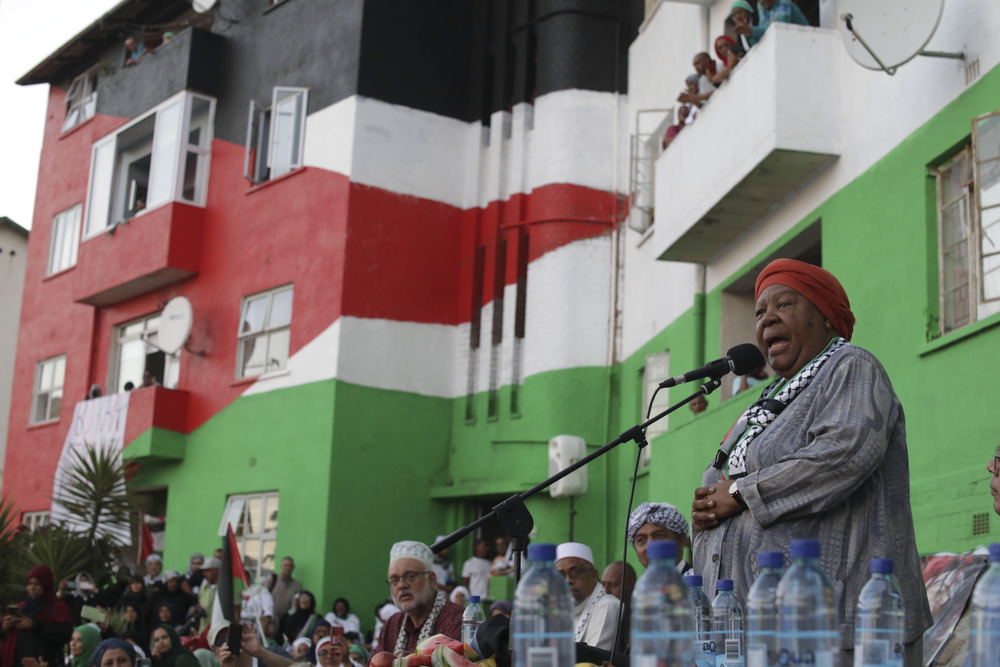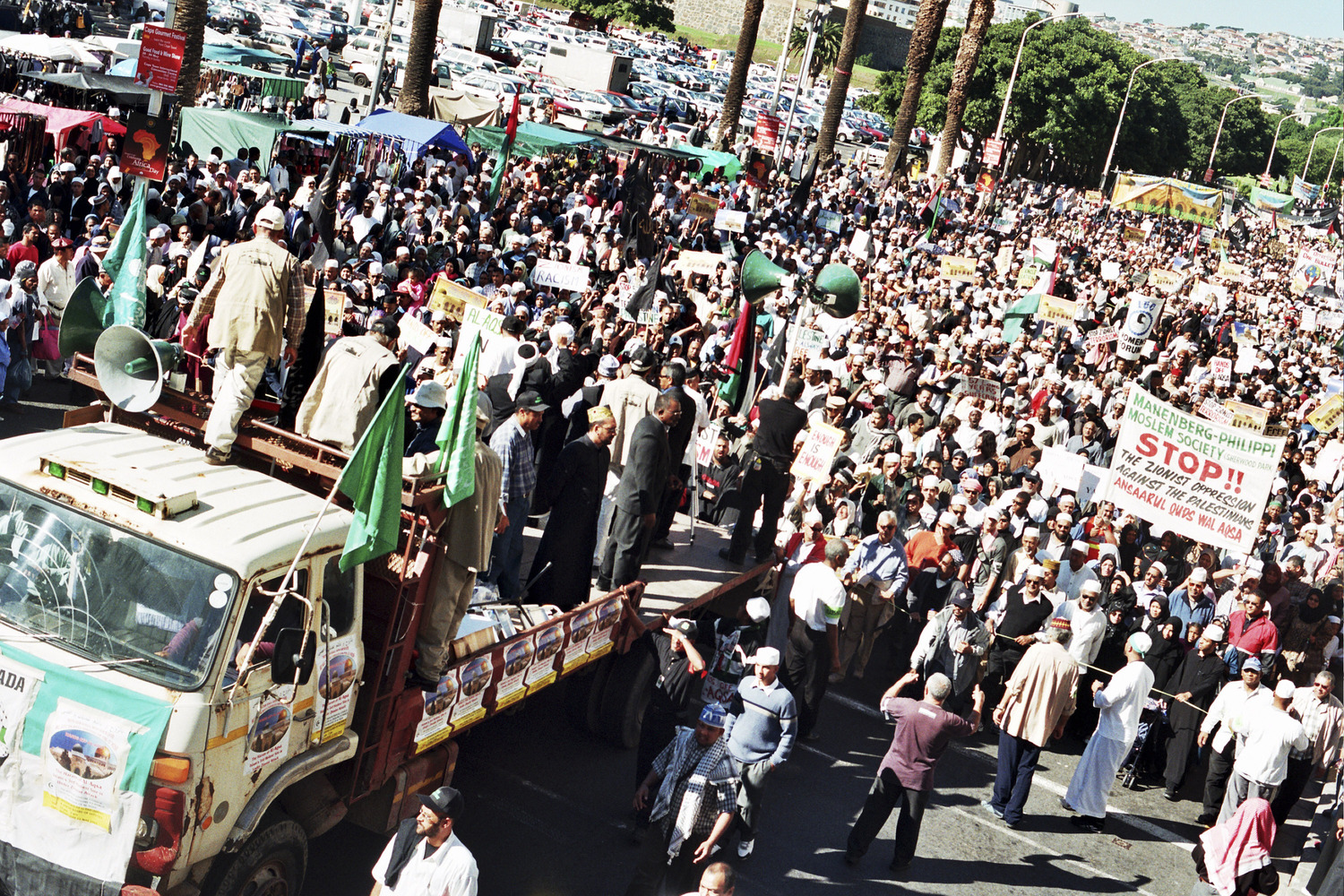“I was named after Yasser Arafat,” writes Capetonian photographer Yasser Booley. From a young age he recorded the signs of solidarity with a people living under circumstances that clearly resonate with those who experienced the apartheid system in South Africa.
There is an understandable thinking that the solidarity movement with Palestine in the Bo-Kaap started with Nelson Mandela and his coupling the Palestinian cause with ours. This thinking would not be accurate. One of the five pillars of Islam is the Hajj, the pilgrimage. But to travel to Mecca to perform the Hajj, and then on to Medina to spend times at the mosque of the Prophet (Peace be upon Him) is not often recognised as one of these pillars. This journey, for as long as it has been undertaken from the Cape, has always included Al-Aqsa mosque, as the third Holiest place in Islam.
This means that through experience, and woven into our oral tradition, there is a knowledge of Al-Aqsa, Jerusalem and Palestine for many generations. What Palestine was before and after the second world war is something that we are intimately familiar with. Therefore, the struggle of the Palestinians is a part of the heritage this community, and many others in the Western Cape.

The great irony of Cape Town is that in the past, apartheid was the driver of dispossession towards the stated goal of removing all black and brown people form the city centres, but today capitalism is fulfilling that goal without batting an eyebrow. This is the situation we are facing in the Bo-Kaap.
Progressively our story in this city is not exposed to the greater world, so that when houses go for sale, the new owners have no recognition of the communal space that they now belong to, the history of the area, and the legacy or value of its heritage. There is a conscious effort, I believe, to reduce the sum of my cultural heritage to colourful houses.
I was named after Yasser Arafat. From an early age, we would join our parents on protests, anti-apartheid as well as pro-Palestinian. Naturally, we were politicised at an early age, and for us, even as kids, the injustices that have been perpetrated against the Palestinians were evident. Initially my role was limited to participation, but when I started with photography, I switched to documenting all the gatherings, marches, and events around Palestine.
In other “coloured” suburbs, the painting of pro-Palestinian murals has been contested by the city in the form of law enforcement (subject to the Democratic Alliance-led province and not the national government), who would arrive very promptly and employ resources to ensure that the wall gets painted over – while they take ages to arrive when there is a gang shooting or other crime in that same community. The anti-Palestinian stance is natural in a city where the ruling party has refused to acknowledge the genocide in Palestine, and continues to support apartheid-Israel and their right to “self-defence”. In the Bo-Kaap, there was talk of removing the murals in the beginning, but the city did not have a leg to stand on as many of them were done with permission of the owners.

I think that for Palestine to be free will take a huge undertaking and a shift in the roots of the global hegemony, which I unfortunately don’t see happening soon without tremendous upheaval and conflict. My wish for Palestine is that her people find a place of safety, that her mothers and children are protected, and that her culture is preserved.
My wish for the Bo-Kaap is that her people find the unity and strength to buy back our community, not as a request, but as a statement of purpose, and rid our area of colonisers in the last bastion of white privilege, Cape Town.
About Yasser
Yasser Booley is “listening to his lens.” Making pictures from the age of 17, Booley observes his world as a meerkat, or mierkat as he calls himself. His uninhibited account of the lives of factory workers, partygoers, the unemployed, street wanderers, exhausted commuters crammed into trains, and protesters at political rallies bears witness of great compassion and intimacy with the world around him, his world, South Africa.
In 2021, ZAM published this feature of Booley’s work here


